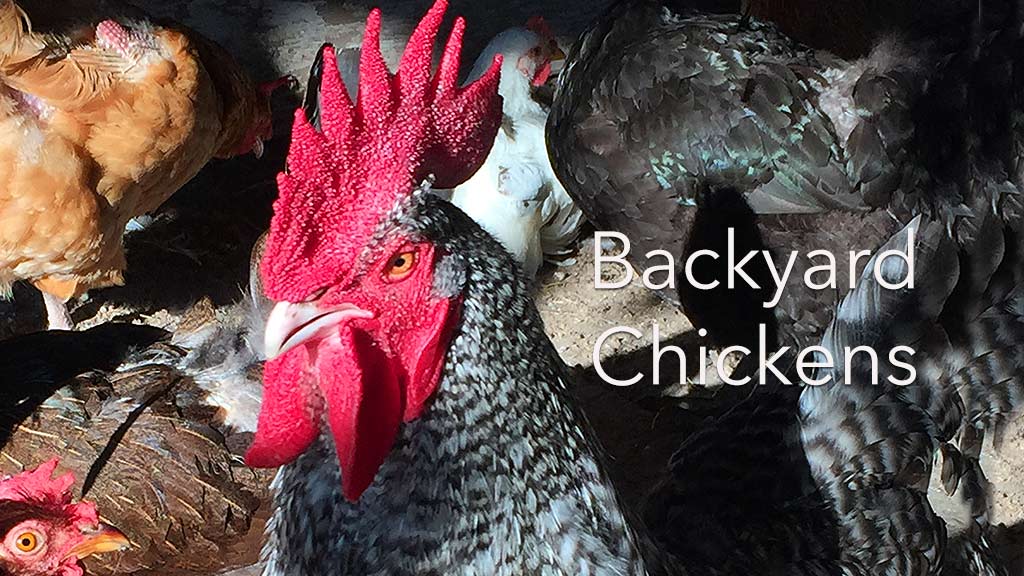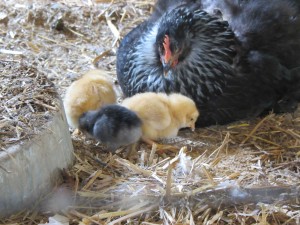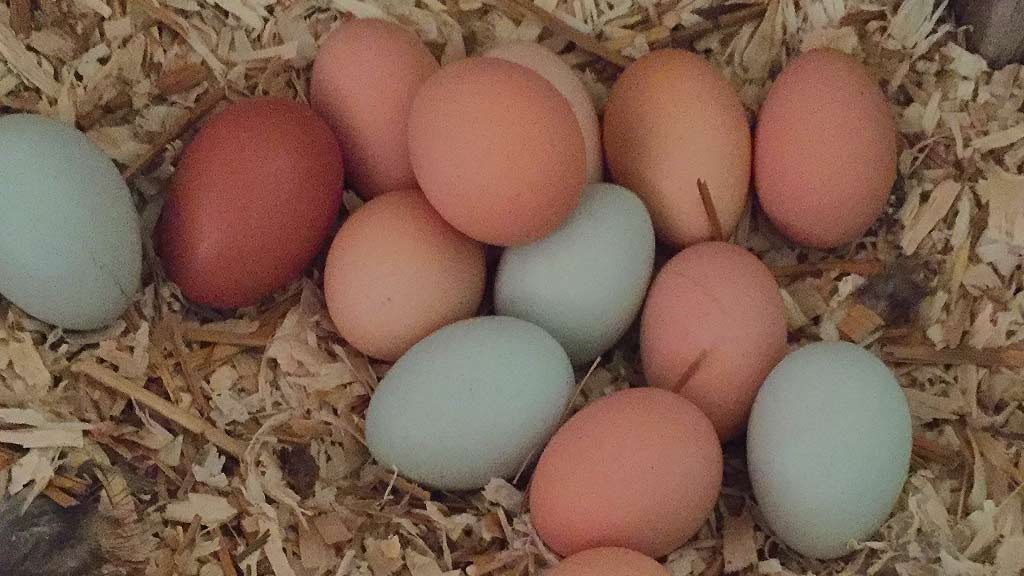
Every day, more of us are turning to backyard chickens as a natural source of farm fresh…errr yard fresh eggs.
Here is a short list of facts and how-to’s on getting started with your own New City farmette!
Raising Backyard Chickens in Rockland County, NY
First thing’s first. Make sure your chicken pen doesn’t end you up in the State Pen! I exaggerate, but our county has zoning rules on keeping any livestock animals. Here is a link to a Rockland County site that will help you determine if keeping chickens is possible in your area.
Join the Rockland County Backyard Chicken Facebook Group
Requirements for Raising Backyard Chickens
Chickens require a predator-proof place to sleep at night, at least one nesting box for every 4 birds, clean absorbent bedding (wood chips are best…straw and hay are a no no because they retain too much moisture), a poultry diet, and fresh water. Additionally, if you can provide your chickens with some daytime opportunities to roam outside, eat grass, and forage for insects and worms, they’ll be very happy. No supplemental heat during winter is required, but make sure that their water supply doesn’t freeze! Be careful to protect your chickens from the neighbor’s (and your own) dog. Acclimate your dog to your new brood by placing her on a leash and allowing her to investigate the chicks by smell. It’s normal for a dog to be curious, so allow her to watch, smell and approach, but give her a firm ‘no’ if she gets too aggressive. She’ll soon learn that she is allowed to be around them, but not to threaten them.

Hens with access to a rooster will lay fertilized eggs. The eggs will not look or taste any different from non-fertilized eggs, but if a hen chooses to sit on those eggs for 21 days, something miraculous happens! Chicks raised naturally (by moms and not incubators) are better adjusted, healthier and…yes, just plain adorable.
Where To Buy?
Stores like Agway, Tractor Supply and feed stores sell week-old chicks, but you’ll get more variety from mail order companies like Stromberg’s. Chicks that have been ‘sexed’ are all female. ‘Straight Run’ are a blend of whatever happened to hatch out of the egg and are a mixture of both sexes (not good if you are concerned about the noise that boys (roosters) will make). Female chickens will lay eggs almost daily starting at 6 months with or without a rooster, but a rooster will provide you a chance to raise baby chicks on your own (more on that in another blog). Do not buy chickens that are sold as ‘meat’ birds if your interest is eggs. ‘Meat’ chickens are bred for fast growth and may develop walking issues at a young age.
Did You Say Mail Order?
Yeah. It’s kinda crazy, but newly hatched chicks can be packed into a box and shipped because they have an ability to last an astounding 3 days without food or water. It’s a remarkable feat of nature. Here’s how it works. As chicks near the end of their incubation period, they cheep while they are still inside the egg (and the mother clucks back btw). This accomplishes two goals: Firstly the clucking allows the chicks to imprint on their mother even before they hatch. Secondly, the clucking helps the chicks to coordinate their hatch time. This is critical to the survival of the chicks because those chicks that hatch first have to wait around until everyone else is done emerging from their egg. If the hatch time is too spread out, the chicks that were born first have to wait around too long without food and water. To ensure that they have enough nourishment to sustain them while they wait for everyone to hatch, chicks absorb the remaining portion of the yolk that was inside the egg with them. This provides them with enough moisture and energy until the rest of the chicks hatch, or in the case of mail order chicks, enough nourishment to ride out the length of time it takes to be shipped from Oklahoma to your door.
The bluish green eggs were laid by an Araukana breed chicken. The chocolate brown eggs by a chicken called Welsummer. Both breeds are available for purchase through companies like McMurray and Stromberg hatcheries.
Caring For Chicks That Arrive By Mail
Companies that ship chicks will only ship them if outside temperatures aren’t too hot or too cold. They also require a minimum order of chicks (usually 20 or 25) so that the birds can be packed close enough together to generate warmth. The company will notify you when the chicks are shipped so that you can pick them up directly from the post office and reduce the chance that the chicks will get cold. When they arrive, they should be placed under a heat source and given access to food and water. Some people recommend dipping a small portion of each chick’s beak into the brooder’s water source to help the chicks understand where the water is located. You can also scatter a bit of the chick’s feed on the bottom of the brooder. The chicks are born with a natural instinct to explore their environment by pecking and the scattered feed will draw their attention and get them to eat sooner. Because the chicks are going to need food, water and heat immediately upon arrival, you should have their brooder set up and ready to go before they arrive. Here is how to do it.
What Can I expect from Raising Backyard Chickens?

Brush up on your quiche recipe if you plan on owning backyard chickens. Egg laying breeds produce as many as 5 eggs per week! A side-by-side comparison between your eggs and those you buy in the store will show glaring differences. Your eggs will have a richer colored yolks, firmer whites, and will taste better.
Chickens are low maintenance birds that provide delicious, beautiful, all-natural eggs daily. Mix their manure with grass clippings, weeds, twigs and other yard waste and make your own nutrient-rich compost. If allowed to roam in your yard, chickens will eat harmful bugs like ticks and keep weed leaves pruned low to the ground. A chicken will produce eggs for 2- 3 years and will live to be 5-7 years of age. An all-female flock will make no noise and each hen can be expected to lay 3-5 eggs per week. Chickens require no annual vaccines and typically are disease free their entire lives (but call Animal Medical of New City if you have a backyard-chicken problem or question). Egg laying chickens require a daily dose of calcium that is mixed into all commercially sold chicken feed. In almost all cases, chickens can be kept for a few cents a day per bird.
Next Up:
Animal Medical of New City, Veterinarian serving Rockland County, Haverstraw, and other areas.
Meet the Veterinarians at Animal Medical of New City
Have a dog or cat…or chicken? We’d like to be your pet’s family doctor
Additional Reading
Remains Point To 30,000-Year-Old Human-Animal Bond
Newly uncovered, 30,000 year old fossils provide further evidence that dogs were man’s first domesticated animals.
Is Spaying And Neutering Bad For My Pet?
On September 3rd, 2019, the NY Times published an Op-Ed piece by Alexandra Horowitz, a cognitive scientist who studies dogs. In the article, Horowitz argues that we have created a culture where we are desexing dogs and cats to conform to our way of living without paying enough attention to the health implications of our actions. The article is causing quite a stir amongst pet owners and veterinary professionals alike.
How To Stop Your Dog Digging Up Your Flower Bed
Sure you can fence your flowers in or space wooden stakes throughout the bed, but who wants to do all of that!?








